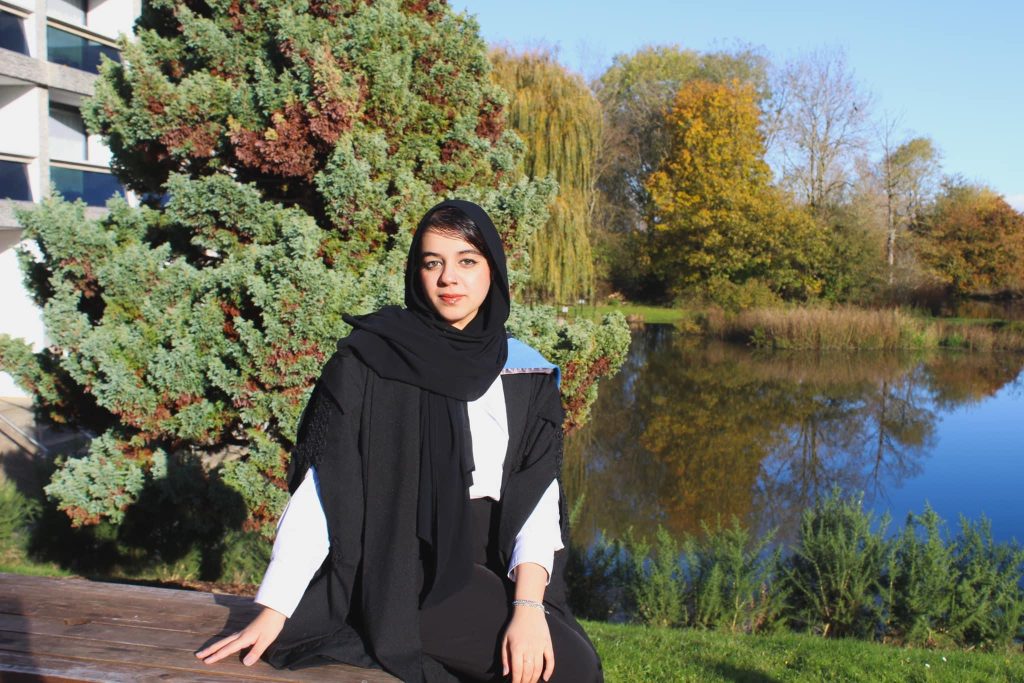Why did you decide to study the MSc in Applied Linguistics and Second Language Acquisition course at Oxford University?
My educational background prior to my master’s degree was in theoretical linguistics and French as a second language. I chose the MSc Applied Linguistics and Second Language Acquisition (ALSLA) course to explore in-depth the application of these theories to real-life settings. I also decided to pursue a rigorous master’s degree that would equip me with the skills, aptitude, and knowledge necessary for a PhD program.
What is your full-time job?
Soon after graduating from the University of Oxford, I worked as an English language instructor to undergraduate students and then as a copywriter for a PR agency, to obtain diverse experience in the field. As of September 2024, I am a PhD student at Aston University, studying Forensic Linguistics.
What did you particularly like about the course?
MSc ALSLA was an exceptional course that provided me with great insights into linguistics and its application to pedagogy, as well as gave me the opportunity to study at the renowned University of Oxford where I learned so much about Oxonian culture and traditions. It was both exciting and honoring that students got to attend lectures and seminars by pioneers of the field, such as Paul Meara himself. I also liked that we were able to pick a novel topic of our choice for our dissertation with supportive supervisors.
How has studying the course helped with your professional development?
MSc ALSLA taught me a lot about research, as well as research ethics and integrity. On a foundational level, I learned about applied linguistics and language acquisition. On a practical level, I exponentially improved my writing and research skills based on the multifaceted training that I received during the course. I also enjoyed statistics and its application to linguistics, which I am now enhancing in my PhD. Due to the rigorous nature of the program, I also believe that MSc ALSLA has made me a more resilient and dedicated student and researcher, which is also being reflected in my PhD journey.
What do you most value about the teaching at the Department?
I believe the lecturers themselves are the most valuable assets of the Department. They are all so accomplished in their own subfields and are open to questions all the time, which allows for growth and learning. I appreciate how approachable and supportive all lecturers are, and how they always give multiple, inclusive examples from different languages and pedagogical settings during lectures.
What is the community (students & staff) like at the Department?
The students that I got to experience MSc ALSLA with, i.e., class of 2023, were incredibly smart, cultured, and enthusiastic. The community definitely helped shape my MSc ALSLA experience, as everyone was so intelligent, welcoming, and motivating. One of my closest friends today is a fellow MSc ALSLA 2023 graduate as well. The staff are kind, committed, and incredible at what they do – teaching and research! They encourage creativity, criticism, and curiosity in the classrooms.
What advice would you give to new students who are about to start the course?
A piece of advice that I would like to give to new MSc ALSLA students is to enjoy the course to the max because you will only experience MSc ALSLA once! Your dissertation will play an important role in future opportunities such as your PhD and job applications, so make it the best piece of work that you can, which reflects all that you have learned throughout the MSc ALSLA journey. While the dissertation seems like an end product, you should be thinking of it from the start, as everything along the way will contribute to it.
What is your favourite memory of studying at the Department?
My favorite memory from the Department was doing a statistics project on the correlation between MSc ALSLA student assignment submission time and students’ preferred spice level at Nando’s (spoiler: there is none!). Working with like-minded individuals on a topic as such was fun and brought out our statistics skills in an unconventional, creative way!

I believe the lecturers themselves are the most valuable assets of the Department. They are all so accomplished in their own subfields and are open to questions all the time, which allows for growth and learning.





